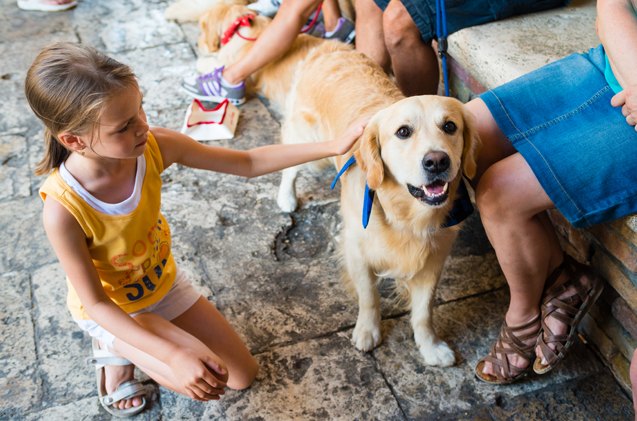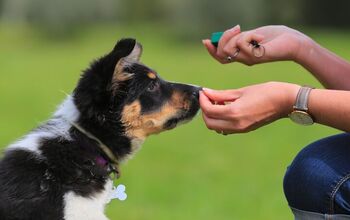Study: Therapy Dogs Help ASD Children Improve Social Skills

Researchers with the Sam and Myra Ross Institute collaborated with Green Chimneys, a therapeutic school for children who have behavioral, emotional or social challenges, to see if therapy dogs made a difference in children with ASD when it came to peer engagement and social interaction.
Lead investigator Dr. Joanna Becker said that they found that dogs not only had a positive effect on the emotional states of the children, but the dogs also motivated the children to engage more with their peers. She believes that animal-assisted interventions are beneficial to teaching children with ASD how to better interact with peers, their families, and their communities.
Related: Study: Family Dogs Benefit Children With Disabilities
The researchers looked at the emotional and social functioning of 31 Green Chimneys students who were between eight and fourteen years old and who were also diagnosed with ASD. They compared their data before the children engaged in the study, where they either were participants in a social skills group that had the assistance of a dog, or a traditional social skills group with no dog present, to the data after the groups met.
What they found was that the social skills training that incorporated dogs was more effective than the training that did not. Children who had the intervention that included a dog had more typical social communication, less stimming (repetitive behaviors) and fewer social skills deficits after their intervention. Those children also showed a significant change in their perspective taking and theory of mind (ability to understand other perspectives) and appeared less isolated and depressed.
Related: Therapy Dogs Help Children With Autism More Than We Thought
Green Chimneys Associate Executive Director of Clinical & Medical Services Dr. Steven Klee says that this study is an opportunity to add to the ever-growing base of data that shows how integrating animals into various therapy is beneficial. HABRI is committed to funding projects that explore and expand the human-animal bond, and this research just continues to show how companion animals can make a difference in the health of children.

More by Lori Ennis







![Dog-Cam Shows a Day in The Life Of a Therapy Dog [Video]](https://cdn-fastly.petguide.com/media/2022/02/16/8226248/dog-cam-shows-a-day-in-the-life-of-a-therapy-dog-video.jpg?size=350x220)















